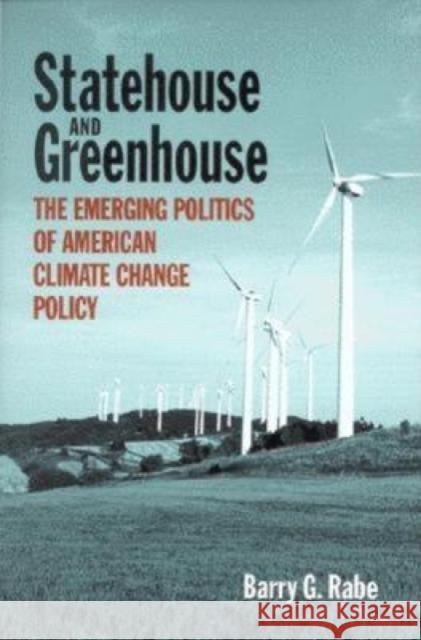Statehouse and Greenhouse: The Emerging Politics of American Climate Change Policy » książka
Statehouse and Greenhouse: The Emerging Politics of American Climate Change Policy
ISBN-13: 9780815773092 / Angielski / Miękka / 2004 / 240 str.
Statehouse and Greenhouse: The Emerging Politics of American Climate Change Policy
ISBN-13: 9780815773092 / Angielski / Miękka / 2004 / 240 str.
(netto: 92,10 VAT: 5%)
Najniższa cena z 30 dni: 96,90
ok. 30 dni roboczych
Bez gwarancji dostawy przed świętami
Darmowa dostawa!
Few public policy issues seem as hopeless as global climate change. Mounting evidence shows that accumulating levels of greenhouse gases are already beginning to alter climate patterns, and this only intensifies concerns about long-term dangers. In turn, potential policy remedies appear feckless. Prospects for implementation of the Kyoto Protocol are highly uncertain even among nations that have ratified the accord. At the national level, the United States, which is the leading source of greenhouse gases, remains completely disengaged from the Kyoto process. Increasingly, other developed nations severely criticize the United States for its perceived failure to engage this issue. leadership role in reducing greenhouse gases suggests that a far more robust process for American policy development is under way. Conventional analyses assume that climate change can only be addressed by international regimes and national governments. However, many states have developed active multifaceted programmes to address carbon dioxide, methane and other greenhouse gases within a diverse array of policy sectors, including energy, environmental protection, transportation, natural resources and agriculture. particular attention to the factors prompting so many states to take significant steps toward greenhouse gas reduction. These states cut across regions and traditional partisan divides; agency-based policy entrepreneurs appear to be central players in developing policy ideas and forming viable coalitions. Rabe argues that this recent flurry of experience can move the debate over climate change from hyperbole to the realm of what is politically, economically and technically feasible. He also offers alternatives for future policy development. These would build on recent state initiatives and actively engage them in long-term policy formation and implementation.











